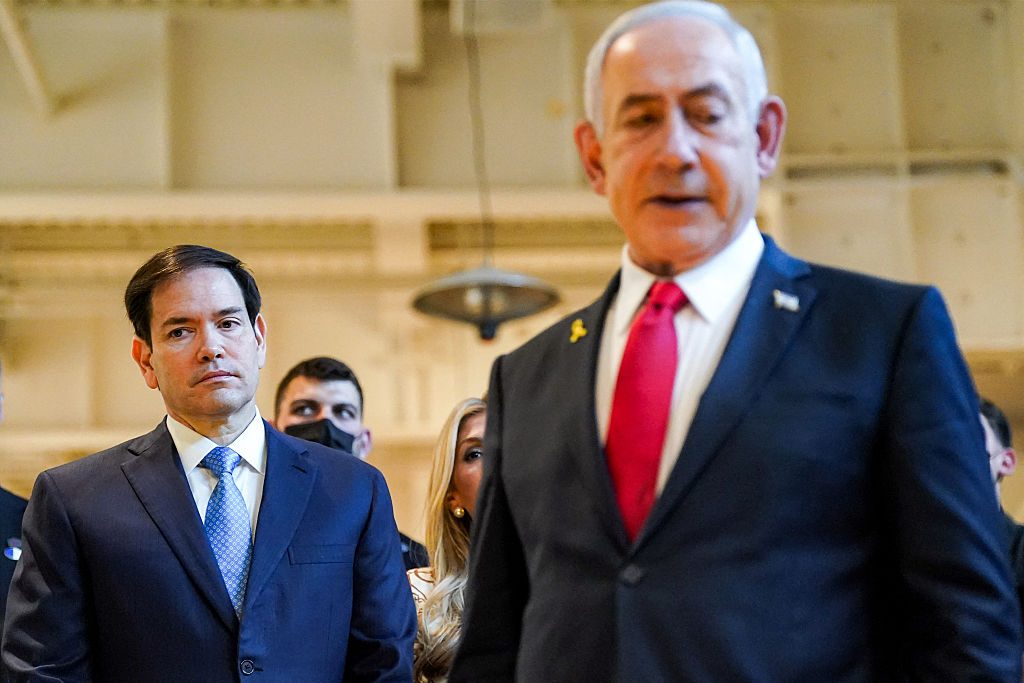Israel launched a new ground offensive in Gaza early this morning, just a day after visiting US Secretary of State Marco Rubio promised “unwavering” support for Benjamin Netanyahu’s war effort. Nonetheless, Rubio’s trip this week signals the Trump administration’s growing concern about its declining influence over the Israeli Prime Minister.
The clearest example of that declining influence came via last week’s Israeli strike on a Hamas compound in Qatar. That attack, which killed a number of Hamas officials but no senior leaders, infuriated the Qataris. The Gulf state has long hosted Hamas delegations and, although a close US ally and host to American military forces, also maintains close relations with other extreme Islamist groups including the Taliban.
Reporting from yesterday now suggests that, contrary to his public assertions, Trump was given advance warning of the strike by Netanyahu. Still, Washington is evidently concerned that Israel’s action undermined its credibility with its Sunni Arab allies. The Arab monarchies have long trusted that, in return for their expansive economic investments and support for US security interests, America will guarantee their sovereignty. In an effort to placate these concerns, Trump hosted a dinner for the Qatari Prime Minister following the attack and pledged that Israeli strikes of this kind would not be repeated. On his way to Israel, Rubio told reporters that Washington “was not happy” about what Israel had done.
The Trump administration is far from comfortable with the current impasse in negotiations to end the conflict in Gaza. While Rubio has backed Netanyahu’s strategy in confronting Hamas, Trump wants a resolution to the conflict sooner rather than later. He recognises that Saudi Arabia’s accession to the Abraham Accords requires peace in Gaza first, and places special importance on his own reputation as a “peacemaker”.
Reflecting his marching orders to keep Netanyahu’s focus on a peace deal, during a visit on Sunday to Jerusalem’s Western Wall, Rubio left a note stating: “May peace reign in this Holy Land and in the world.” It is likely, then, that the Secretary of State has demanded of Netanyahu that Israel’s renewed Gaza ground offensive be carried out quickly and with a view to minimising civilian casualties.
But the Trump administration also fears that, amid growing domestic criticism, Netanyahu is more interested in placating his far-Right coalition partners than his allies in Washington. This has been evidenced in the Israeli Prime Minister’s approval of expansive settlement construction in the West Bank and his continued focus on using air power over infantry operations to confront Hamas in Gaza’s dense urban environment.
Rubio is more sympathetic to this than Trump, but the administration is aware of growing concern over Israeli activities by most US allies, not just in the Middle East. And, as with his China policy, Netanyahu has shown he will undermine US interests if he believes he can do so without suffering excess pressure from Washington. In turn, his public support notwithstanding, Rubio is no doubt offering some tough words for Bibi in private.











Join the discussion
Join like minded readers that support our journalism by becoming a paid subscriber
To join the discussion in the comments, become a paid subscriber.
Join like minded readers that support our journalism, read unlimited articles and enjoy other subscriber-only benefits.
Subscribe